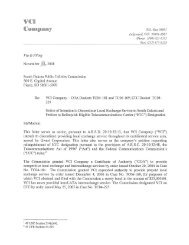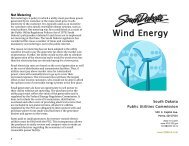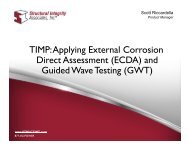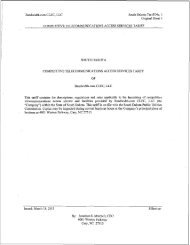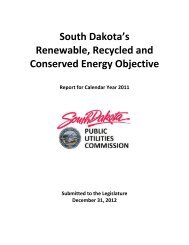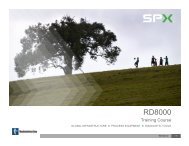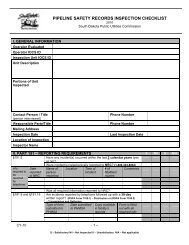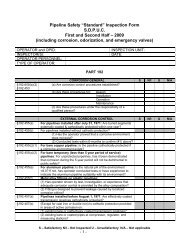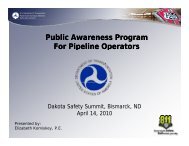Exhibit 1 - South Dakota Public Utilities Commission
Exhibit 1 - South Dakota Public Utilities Commission
Exhibit 1 - South Dakota Public Utilities Commission
Create successful ePaper yourself
Turn your PDF publications into a flip-book with our unique Google optimized e-Paper software.
DOCKET NO. RMU-2009-0009<br />
PAGE 16<br />
HVAS services, the Board will not add a more specific notice mechanism to the<br />
proposed rules at this time, but will consider the issue on a case-by-case basis.<br />
The Board will also add a provision to the proposed rule whereby an IXC could<br />
file a complaint against a LEC if it believes the LEC is engaged in activity that raises<br />
HVAS issues, but the activity does not meet the "100 percent increase in less than<br />
six months" threshold. The Board will add the following paragraph to the adopted<br />
rule to provide for this situation:<br />
Item 4<br />
Any interexchange utility that believes a situation has<br />
occurred or is occurring that does not specifically meet the<br />
HVAS threshold requirements defined in subrule 22.1(3), but<br />
which raises the same general concerns and issues as an<br />
HVAS situation, may file a complaint with the board,<br />
pursuant to these rules.<br />
Item 4 is a proposed amendment to rule 22.20(5) that would allow the Board to<br />
revoke a LEC's certificate of public convenience and necessity, issued pursuant to<br />
Iowa Code § 476.29, for failure to address an HVAS situation as required by Board<br />
rules. This would be in addition to any other remedies or penalties that may be<br />
available to the Board in a particular proceeding, such as civil penalties. The Board<br />
does not intend to revoke a LEC's certificate for failure to properly forecast<br />
unexpected growth in access billings, but a LEC that is adding a conference calling<br />
customer or a customer that offers help desk services, for example, and fails to notify<br />
the IXCs as required by the rules may find its certificate at risk.



